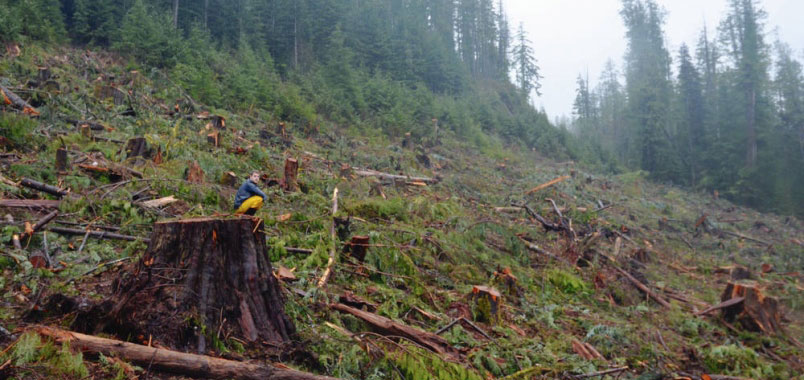British Columbia is blessed with the richest biodiversity in Canada but also has the greatest number of species at risk.
In the face of this biodiversity crisis, the province must take immediate action to protect nature, uphold strong conservation values, and respect Indigenous self-determination over their territories.
Logging is wiping out entire stands of trees hundreds or thousands of years old, leaving species without homes. Monumental mega-dams sever animal migration corridors, and mining disasters of epic proportions flood entire regions with toxic waste. These tragedies point to a biodiversity crisis resulting from the failure of B.C. governments, past and present.
A decade after the international community committed to the Aichi Targets to conserve wildlife and ecosystems by 2020, Ecojustice and the Wilderness Committee measured B.C.’s progress toward reaching Canada’s goals. The results, released this week, are alarming.
The province is outright failing to protect and recover species at risk and ecosystems. It is not doing enough to prevent habitat loss. In many cases, the province’s patchwork of laws, which tend to favour industry interests over nature (see: B.C.’s forestry laws), make achieving protection targets like the ones set in Aichi impossible.
B.C. has made a good start in establishing a network of protected areas and this offers a glimmer of hope. But even then, the province gets poor marks for the transparency and reliability of its claims about the area covered.
The evidence of the province’s failure is detailed and disheartening. This is the shameful legacy of dismal efforts by successive governments to conserve B.C.’s once-vibrant ecosystems and thriving biodiversity.
This B.C. government has done little to reverse the trend. But it could. It must, if it wants to conserve what makes B.C. such a beautiful and healthy place to live.
One of the terrible ironies about long-running failures to address the biodiversity loss crisis — here in B.C. and elsewhere in the world — is that progressive solutions have had plenty of time to emerge, be debated, implemented and proven to work.
But these solutions rarely, if ever, get put into motion.
The first crucial step is to prioritize ecosystems and biodiversity conservation over economic interests.
Next, we need new laws with the sole purpose of preventing short-term political and economic decision-making from doing permanent harm to our environment. This starts with an overarching biodiversity law that establishes ecosystem health and biodiversity as top priorities across all resource sectors.
B.C. needs laws to protect ecosystems and reduce habitat loss.
This would ensure those ecosystems are still around in the future and prevent many species from becoming at-risk. The province remains one of the few in Canada without a standalone endangered species law.
It needs either an endangered species law or an overarching biodiversity law that would protect nature at all scales (including species and ecosystems) and be aligned with the UN Declaration on the Rights of Indigenous Peoples.
Either law would assess and identify at-risk species in B.C., protect them immediately from harm, and restore the habitat they need to survive and recover.
Besides creating new laws, B.C. must fix existing ones, updating regulations and ensuring the same level of protection from all types of industry.
The current patchwork of industry-specific laws is inefficient and will never give nature the protection it needs.
All these efforts must centre on traditional Indigenous knowledge and governance. Indigenous Peoples have stewarded the lands and biodiversity found in B.C. since time immemorial, and comprehensive funding, supports, and resources must be made available to First Nations to ensure they can keep protecting the environment for many more generations to come.
Recent research in Canada shows biodiversity is highest on lands managed by Indigenous Peoples — higher even than in parks.
Decision-making around conservation and biodiversity must include consultation with First Nations in the province to ensure their expertise and knowledge is reflected in any forthcoming legislation or policies.
Most importantly, these efforts must start now. The 2020 WWF Living Planet Index shows an average 68 per cent global decline in mammals, birds, amphibians, reptiles and fish since the early 1970s.
Will they do what is necessary to save nature in B.C. and leave an invaluable legacy for generations to come? Or fade into obscurity as the latest in a long line of governments that let precious ecosystems wither for short-term profits?
Let’s demand they make the right choice.
This opinion piece originally appeared in the Victoria Times Colonist on May 26, 2021. It was written by Ecojustice lawyer Sean Nixon, Grand Chief Stewart Phillip, president of the Union of B.C. Indian Chiefs, and Chartotte Dawe, conservation and policy campaigner at the Wilderness Committee.


